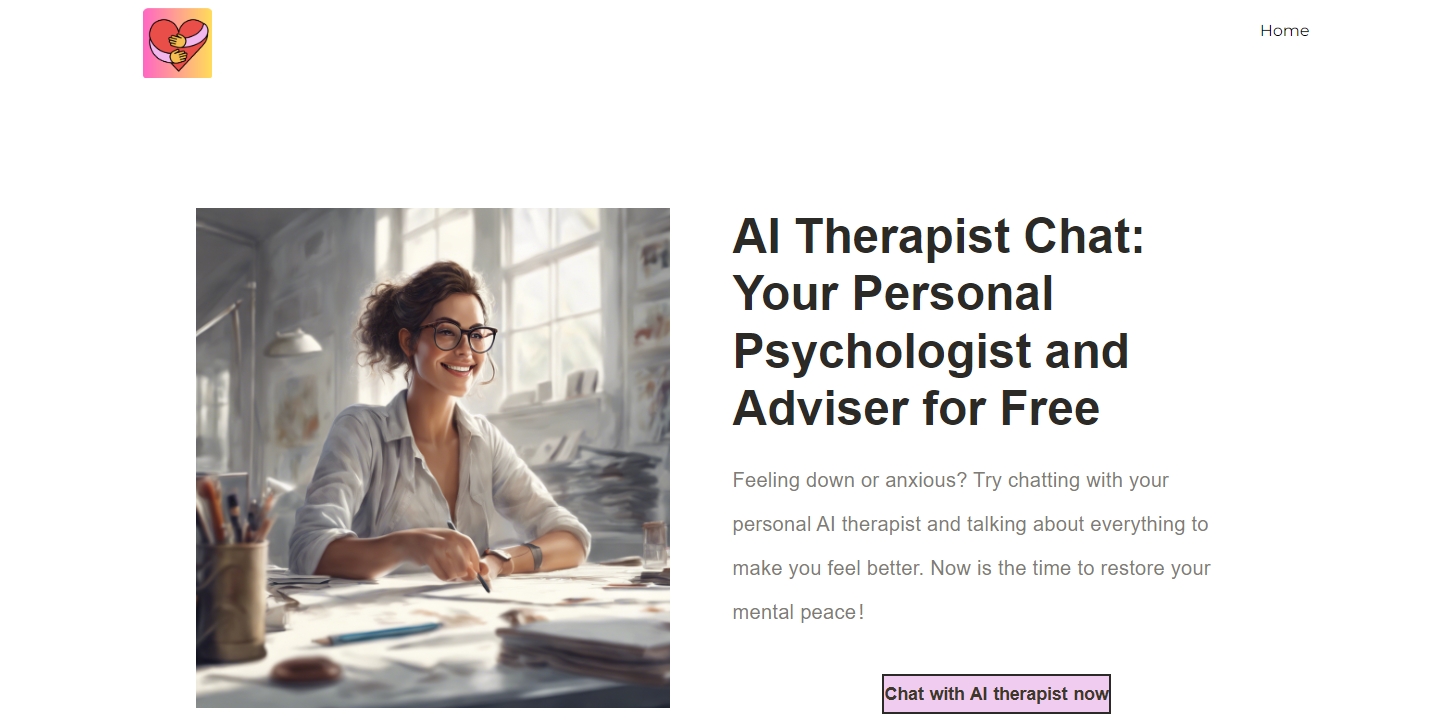What is AI Therapist?
AI Therapist is a chatbot-driven platform designed to offer mental health support through automated, text-based conversations. Powered by advanced natural language processing and machine learning, it delivers real-time emotional insights and coping strategies based on user input. By analyzing the emotional state of the user, it offers personalized guidance aimed at alleviating mental stress and improving overall well-being. AI Therapist makes mental health care more accessible by providing continuous, non-judgmental, and affordable therapy.
AI Therapist Details
Tags: Mental Health, AI Therapy, Emotional Well-Being
Developer: AI Therapist
Key Features of AI Therapist
- Personalized Emotional Insights: AI detects and responds to emotions in real-time, offering a personalized conversation experience tailored to each user’s needs.
- Non-Judgmental Support: The chatbot offers a safe, confidential space for users to express their feelings without fear of judgment or bias.
- Coping Strategies: Provides practical advice and tools for managing stress, anxiety, and depression through guided conversations.
- 24/7 Accessibility: Available anytime and anywhere, allowing users to access emotional support whenever needed.
- Support Between Therapy Sessions: Complements traditional therapy by offering ongoing assistance between professional therapy sessions.
- Confidential Conversations: Uses secure protocols to ensure user privacy and data security, maintaining strict confidentiality for every session.
- Flexible Use: Users can choose specific areas to focus on, such as stress relief or emotional well-being, based on their mental health needs.
How to Start with AI Therapist?
Step 1: Set Your Preferences
Begin by setting preferences based on your mental health focus areas such as anxiety, stress, or general emotional well-being. These preferences allow the AI to better understand your specific needs and tailor responses to help guide you effectively through challenging emotions.
Step 2: Engage in Conversations Actively
Share your thoughts and feelings openly with the AI Therapist. The more you engage in meaningful conversations, the more effective the AI becomes at providing personalized mental health support. Regular interaction enhances the AI’s ability to analyze your emotional state and offer valuable feedback.
Step 3: Answer Honestly
To achieve the most accurate guidance, it’s essential to respond truthfully to the questions and prompts given by the AI. Honesty helps the chatbot understand your emotional needs better, allowing it to offer more precise coping strategies that are customized to your situation.
Step 4: Focus on Your Emotions
Pay attention to how you feel during the conversation with the AI Therapist. The chatbot is designed to help you recognize and manage emotions effectively. Monitoring your emotional state throughout the session enhances the value of the guidance offered by the AI.
Step 5: Track Your Progress
AI Therapist provides tools to track and reflect on your emotional progress over time. Monitoring your mental well-being allows you to see improvements, adjust your approach, and continue to enhance your emotional resilience with ongoing AI support.
Can AI Chatbots Replace Therapists?
While AI chatbots like AI Therapist offer significant benefits in providing immediate, cost-effective, and accessible mental health care, they cannot fully replace human therapists. AI lacks the deep empathy, nuanced understanding, and contextual awareness that human professionals bring to therapy. AI is best suited as a supplemental tool, especially for day-to-day mental health support and as a complement to traditional therapy. It provides valuable real-time insights and coping strategies, making mental wellness more inclusive. However, for complex emotional challenges and therapeutic interventions, human therapists remain essential.

